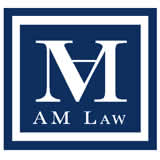If you have substantial debts that you cannot repay, filing for bankruptcy could be your way back to a semblance of normalcy. Hiring a Florida bankruptcy attorney to help you through the process might not be at the top of your list of priorities if you are struggling to come up with the money you need to pay down your debts. But if you trying to find some room to breathe, it can’t hurt to consider talking to an attorney about your situation.
In the meantime, here is how bankruptcy could help you with your debts.
How Bankruptcy Can Help
Bankruptcy is by no means a one-shot solution to debt, but it can help you to manage the debt you have while working toward a solution. Chapter 7 and chapter 13 bankruptcy offer different benefits for different situations, so the first thing to figure out is which will help you the most. It’s important to speak to a Florida bankruptcy attorney to make sure that you choose the right one. In general, though, both offer some basic protections.
Stop Collection and Harassment
Once your file for bankruptcy, the courts issue an order known as an automatic stay. What this order does is threefold: it stops most harassing phone calls from creditors, lawsuits, and wage garnishments. The keyword here is “most.” Criminal cases will still proceed as scheduled, and creditors can still collect certain types of payments.
Prevent Repossession, Eviction, and Foreclosure
The automatic stay also stops actions like repossession, eviction, and foreclosure. An eviction that is still in the litigation process will be halted. Foreclosure and repossession follow different rules, depending on whether you choose chapter 7 or chapter 13 bankruptcy. In chapter 7 bankruptcy, after the stay is lifted, you won’t be able to keep the property if you can’t pay off the debt. Chapter 13 allows you to keep the property following a new repayment plan.
Erase Credit Card Debt
Filing for bankruptcy can help you get rid of most unsecured debts, like credit card debts. Medical bills and personal loans can also be wiped clean when you file for bankruptcy. The only type of unsecured debt that you can’t get rid of with bankruptcy is student loan debt. Chapter 7 usually takes three to four months before the debt is discharged. On the other hand, chapter 13 bankruptcy won’t discharge unsecured debts until you have completed a repayment plan over three to five years.
Take Care of Secured Debt
You can also get rid of secured debts, such as a mortgage, by filing for bankruptcy. You will, however, have to return any assets purchased with the debt.
Get in Touch with a Florida Bankruptcy Attorney Today
Are you struggling to repay your debts? Does bankruptcy seem like it’s your only option? Don’t wait to get in touch with an expert Florida bankruptcy attorney at AM Law. We will help you find the solution that works for your situation. Talk to us today to set up a consultation so you can stop worrying and start working toward a solution.
